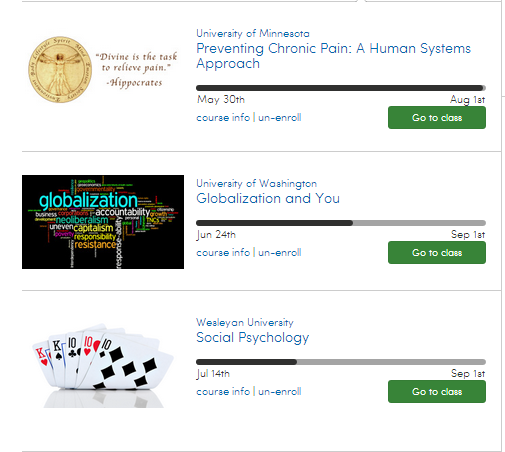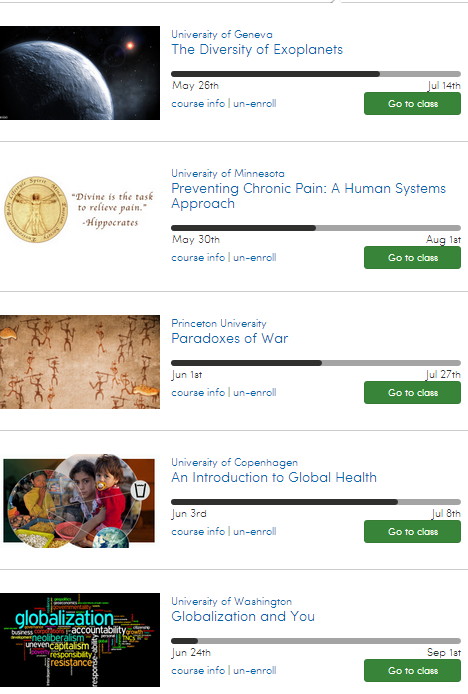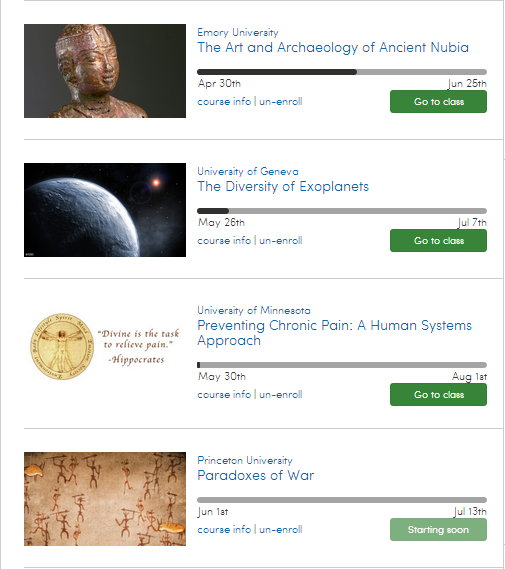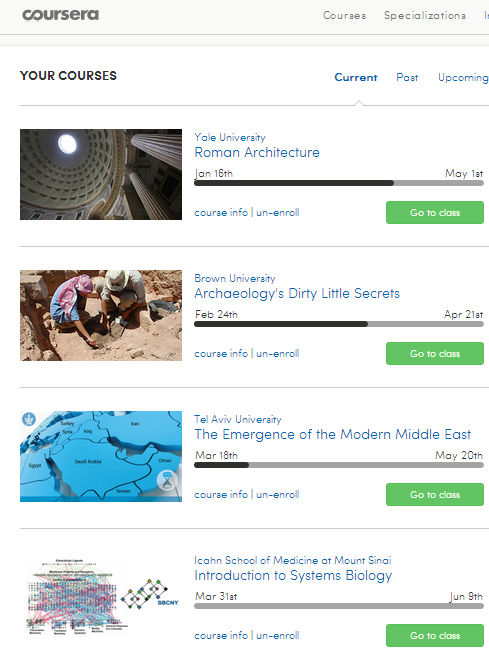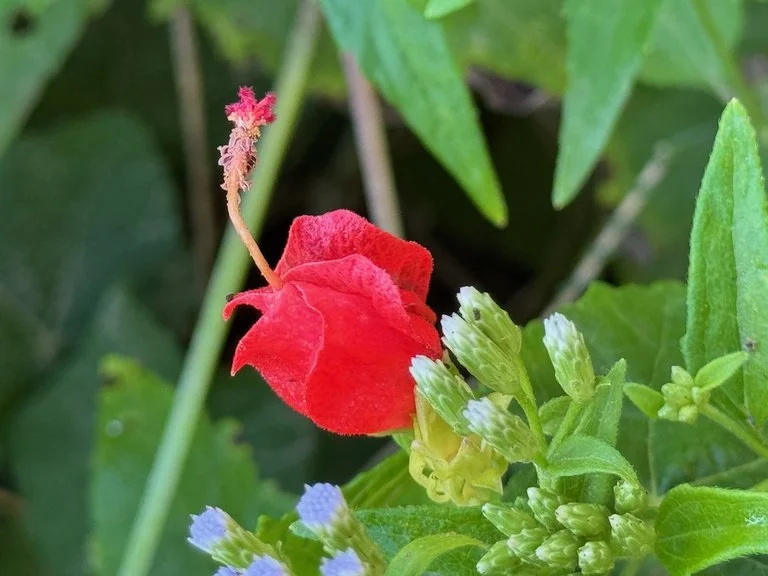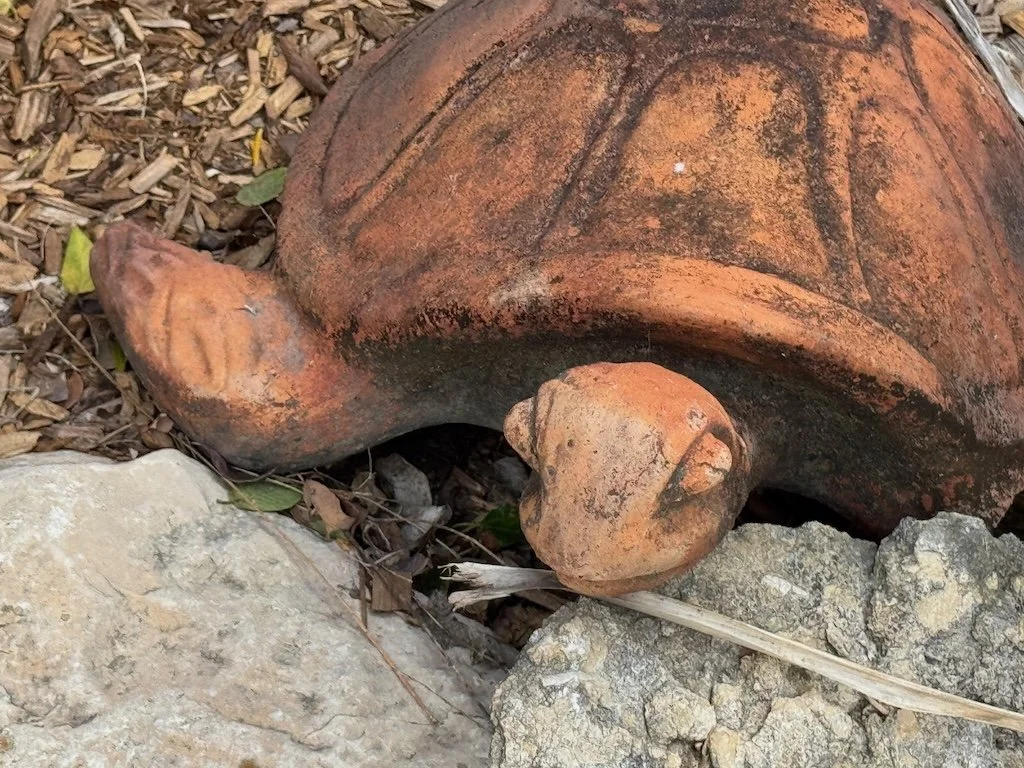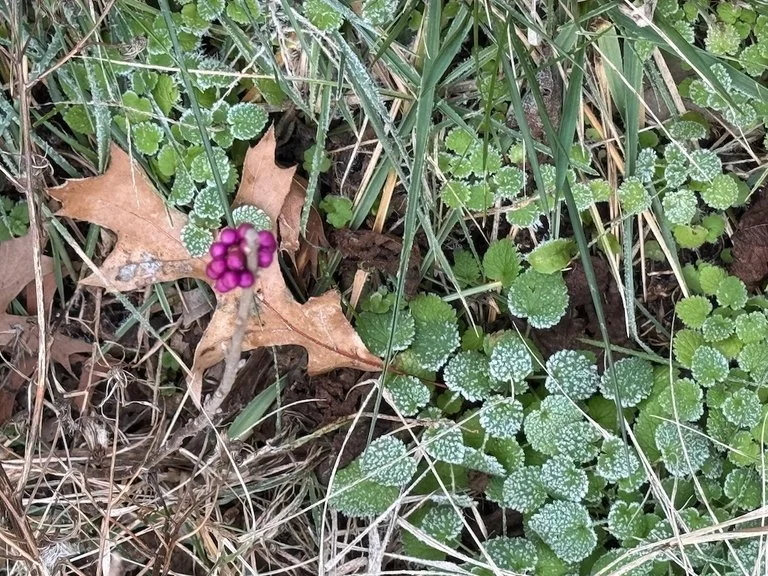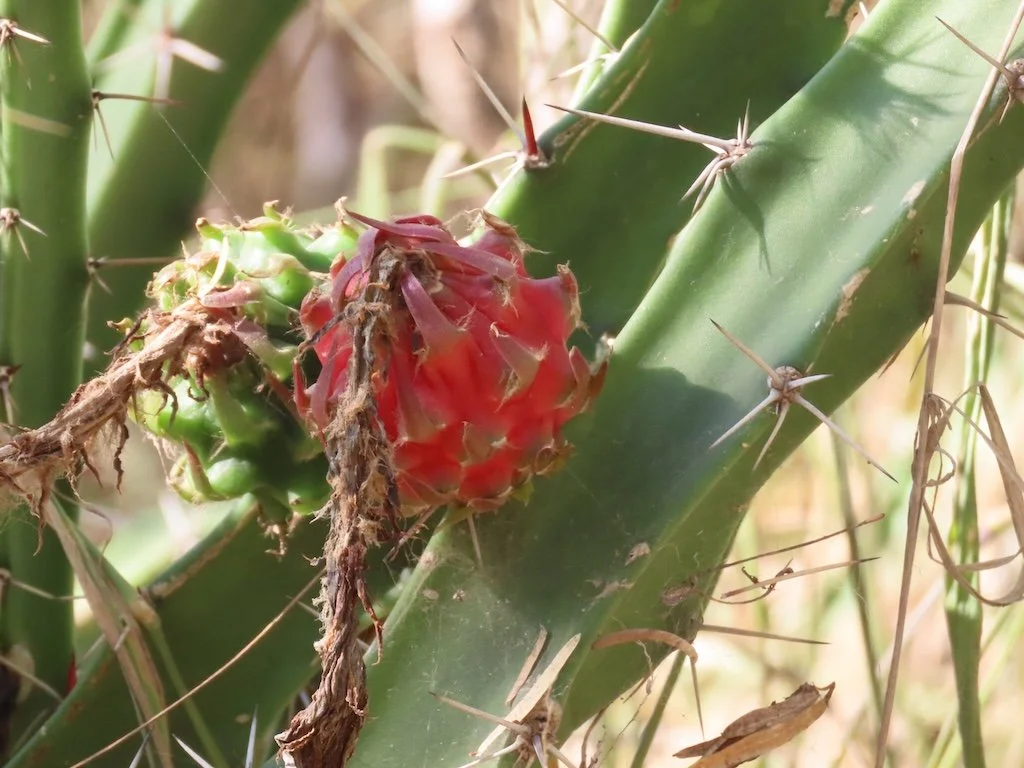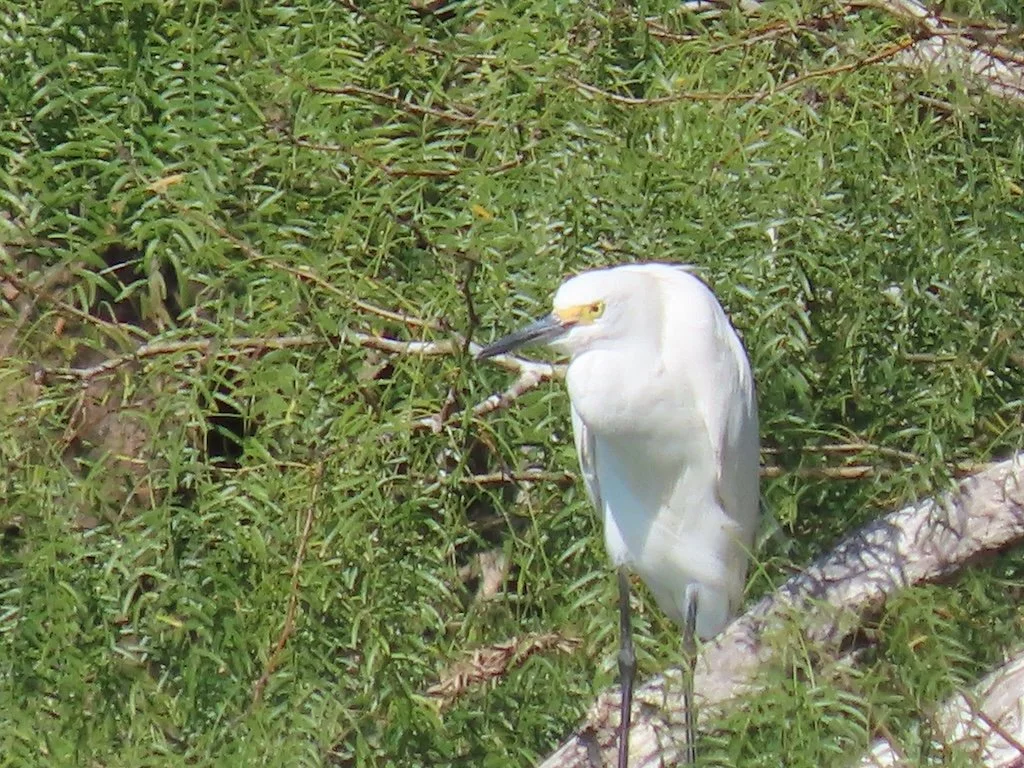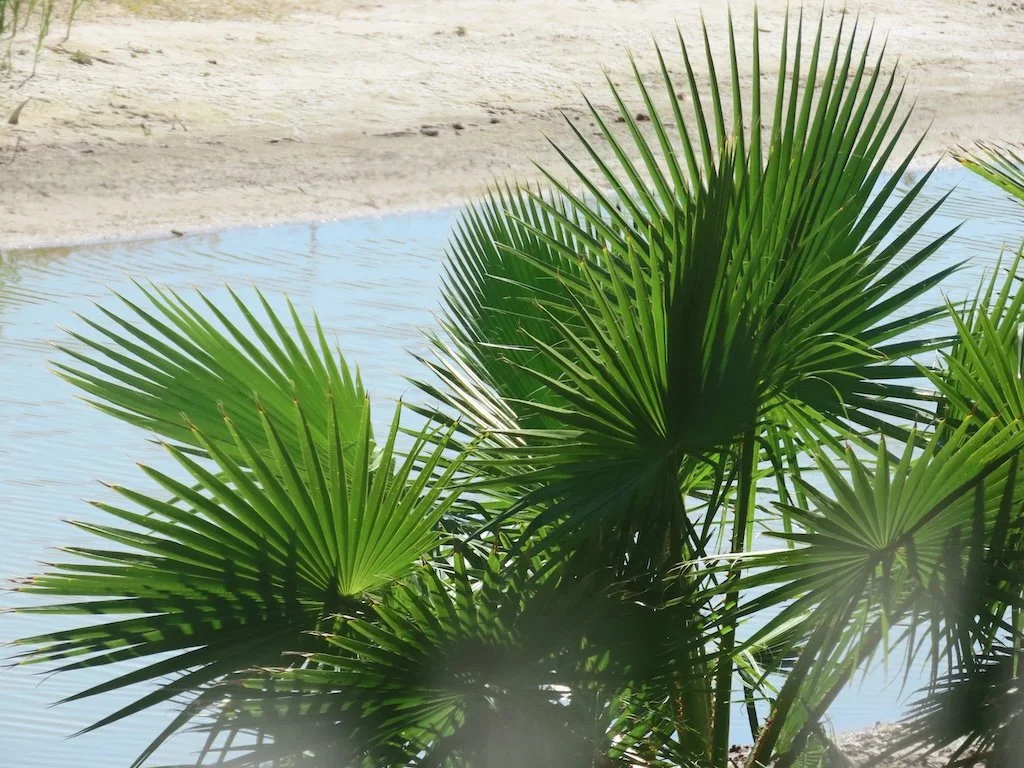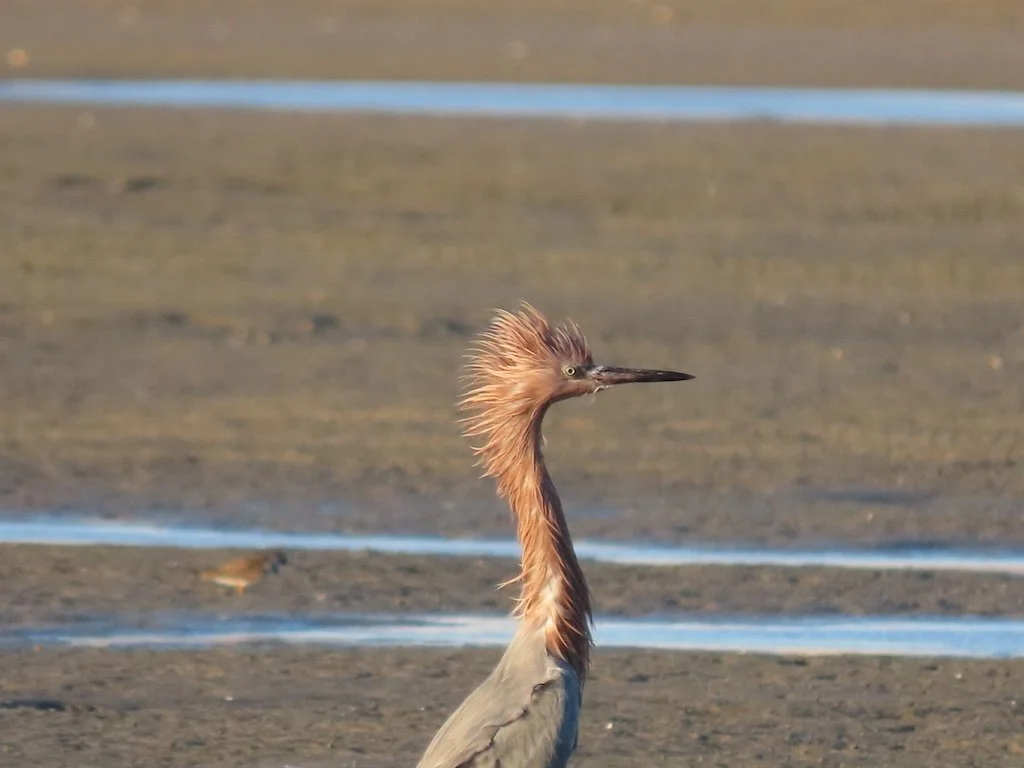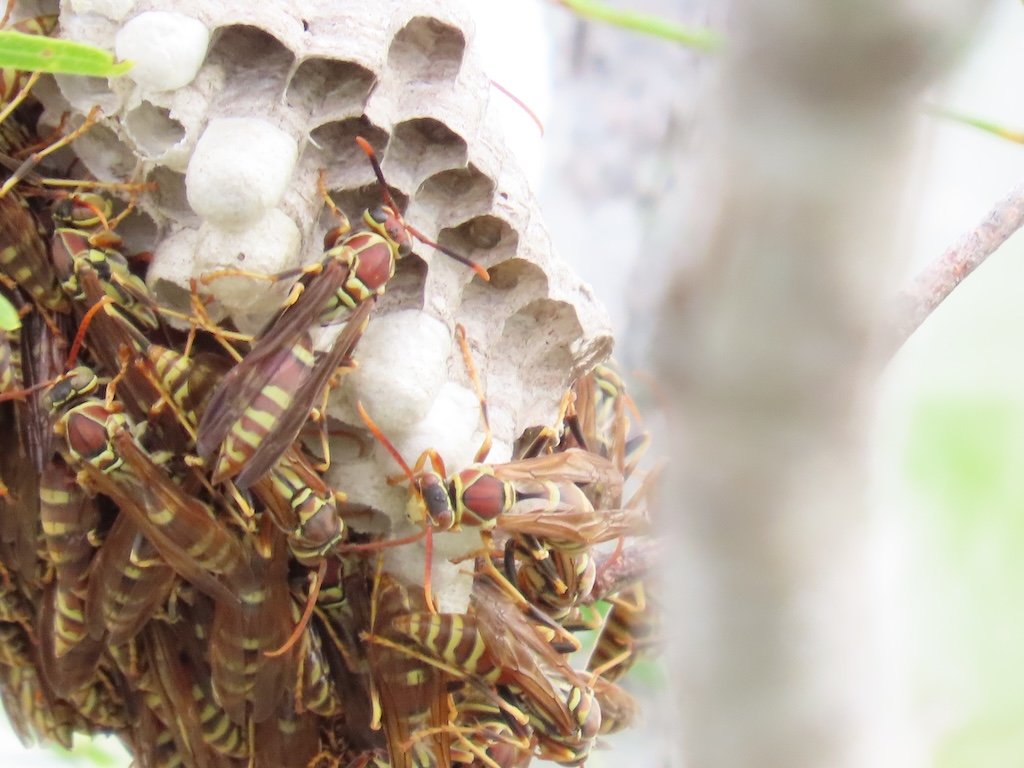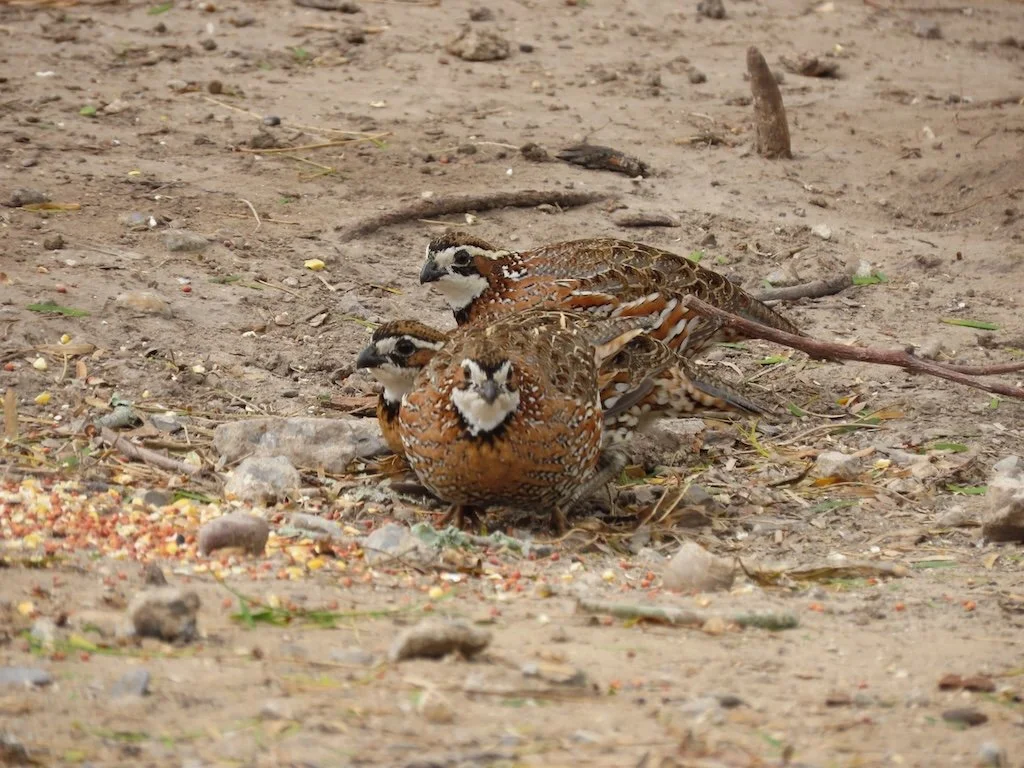Coursera Experience - September 2014
/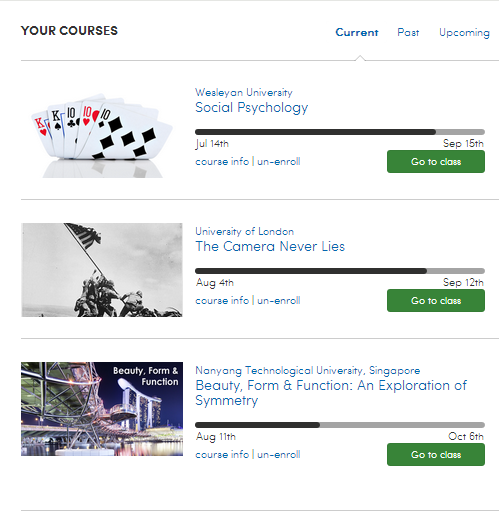 September is going to be a lull in terms of Coursera courses. For most of the weeks I will only have one or two courses. That is probably a good thing since I am attending classroom-based volunteer naturalist training during the month as well. There is no shortage of learning opportunities!
September is going to be a lull in terms of Coursera courses. For most of the weeks I will only have one or two courses. That is probably a good thing since I am attending classroom-based volunteer naturalist training during the month as well. There is no shortage of learning opportunities!
The Globalization and Social Psychology courses are ended…although there is still some reading to do. Both of them were among the more thought provoking classes I’ve taken.
The Camera Never Lies is providing another insight into history and historians. I’ve appreciated the lectures which have included interviews with history grad students. I have considerable reading and video to view for this course as well.
The Symmetry course has been enlightening on several levels. I particularly enjoyed the references to tiling. The segment of the course that focuses on crystals is just starting and I expect it will be as challenging as the Systems Biology or Volcano courses earlier this year.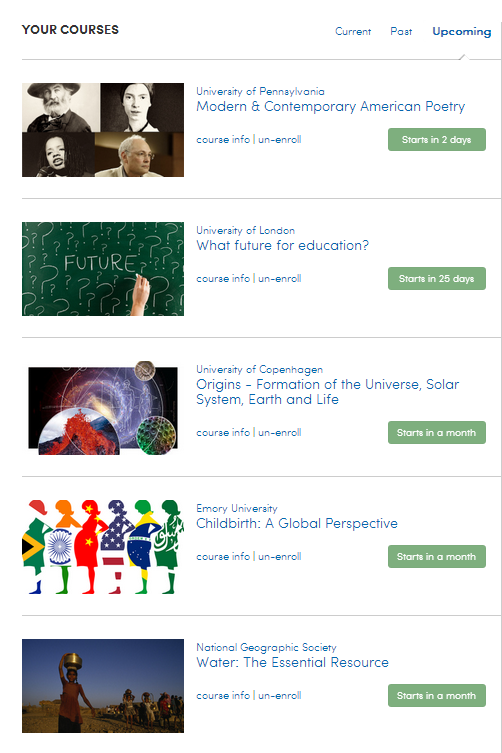
I am looking forward to the American Poetry course starting soon and am anticipating that I’ll be celebrating how different it is than courses I have been taking recently.
October is going to be overwhelming. There are 4 courses I added to my list….and now that I am looking at the list again, I still want to take all of them!


